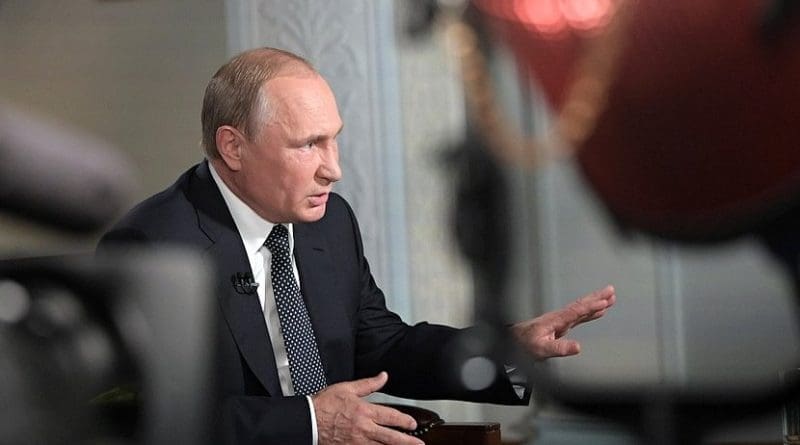Some Elite Groups Will View Putin As Weak If, As Expected, He Now Softens Pension Plan – OpEd
By Paul Goble
Now that Vladimir Putin appears committed to softening the unpopular pension reform plan (newizv.ru/news/politics/23-08-2018/peskov-podtverdil-vozmozhnoe-smyagchenie-pensionnoy-reformy-putinym), many commentators are celebrating him as a superman or at least as someone who has defused a political problem (babr24.com/msk/?IDE=180128).
But not everyone is likely to view any concessions by the Kremlin leader in this area as a good thing, and their reactions may play an important role in what will happen next in Russia, especially because those most likely to have a negative view of this action are elites who will see Putin’s move as an indication of his weakness.
The Telegram channel commentator Nezygar notes today that “it is interesting how various elite groups are playing at interpretations of the future initiatives of the President on pension reform. Already they are saying: the President was forced to make concessions and has shown that he can be pushed around” (t.me/russica2/9244).
For these groups, the Telegram commentator says, all this is a manifestation of “weakness, weakness, weakness. This is something new, and it is a bad scenario” at least for the powers that be who may feel that they too can dissent on issues they had feared to and even push back harder than they have up to now.
That has led some commentators to suggest that there are now going to be questions about the power vertical itself and its ability to push through unpopular measures, measures that even Putin himself has acknowledged are now very much needed given the situation Russia finds itself in (dailystorm.ru/vlast/pensionnaya-reforma-vyderzhit-li-vertikal-vlasti-nepopulyarnye-zakony).
And perhaps even more importantly, such negative assessments by some members of the elite of the Kremlin leader’s latest action raises the question as to what Putin may do after he makes concessions in order to demonstrate that he did so as part of a well-conceived plan of his own rather than in response to dissent.

